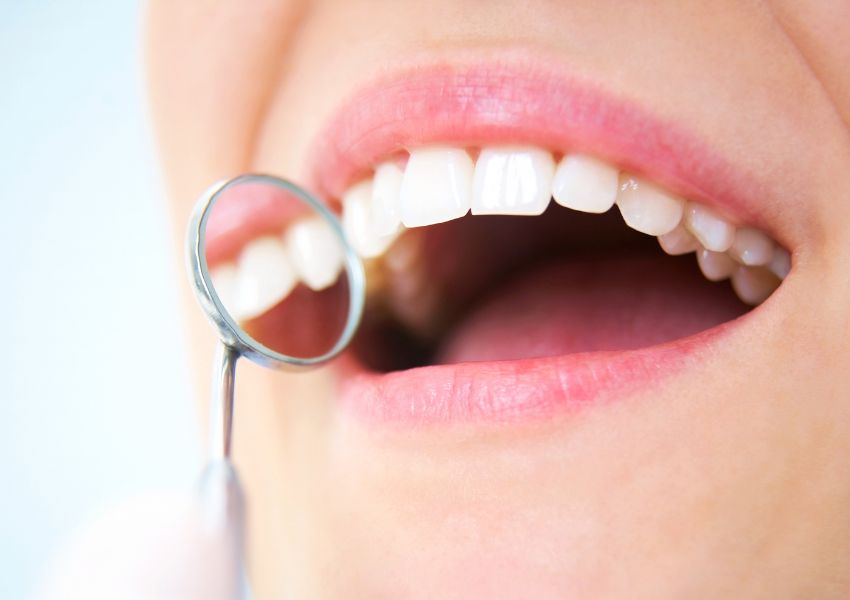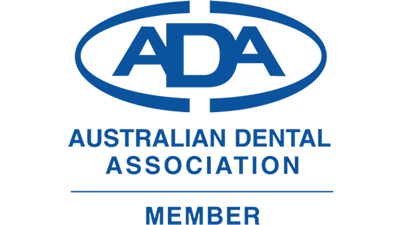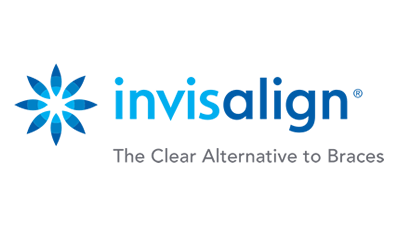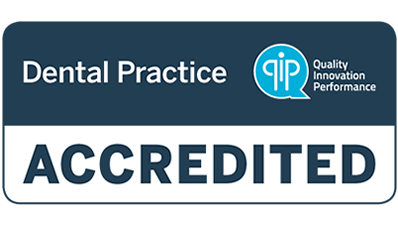Eating the right foods is essential not just for your overall health, but also for keeping your teeth and gums strong and healthy. This article will introduce you to how nutrition plays a crucial role in dental health. You’ll learn about the types of nutrients that benefit your teeth, foods to avoid to prevent dental problems, and how a balanced diet can help maintain a healthy smile. By understanding the connection between what you eat and the health of your mouth, you can make better choices that support both. Join us as we explore the foundational role of nutrition in keeping your teeth in top condition.
The importance of nutrition for dental health
Understanding the critical role of nutrition in dental health is fundamental for anyone looking to maintain a vibrant smile and strong teeth. Our experience as dental professionals has continually underscored the powerful link between diet and oral health. While the emphasis often lies on brushing, flossing, and regular dental check-ups, the influence of a well-balanced diet on dental well-being cannot be overstated.
A nutritious diet does more than just support general health; it lays the foundation for robust teeth and gums. Nutrients such as calcium, phosphorus, and vitamins A, C, and D are not merely beneficial—they are essential for dental health. They contribute to tooth strength, gum resilience, and resistance to oral diseases. On the flip side, a diet lacking in these essential nutrients, or one that is high in sugary, acidic foods and beverages, can significantly increase the risk of developing dental issues like cavities, gum disease, and tooth loss.
The impact of what we consume extends beyond the immediate effects on our teeth and gums. Foods high in sugar, for example, feed the harmful bacteria in our mouths, leading to acid production that can erode tooth enamel. Similarly, acidic foods and beverages can contribute to enamel wear over time, making teeth more susceptible to decay. Conversely, a diet rich in fruits, vegetables, lean proteins, and whole grains can help fight inflammation, bolster oral health, and aid in the prevention of dental diseases.
In our practice, we stress the importance of considering diet as a key component of oral hygiene. It’s a topic we discuss not only with those experiencing dental issues but with all our patients as part of a comprehensive approach to dental care. Encouraging patients to consume a balanced diet is as much a part of our role as advising them on proper brushing and flossing techniques.
The link between nutrition and dental health is both direct and profound. As dental care professionals, we witness the effects of dietary choices on oral health every day. By making informed decisions about what we eat, we can significantly influence the health of our teeth and gums, paving the way for a lifetime of healthy smiles.
The connection between nutrition and dental health
The intricate relationship between our diet and the health of our teeth and gums is a vital aspect of overall well-being that often goes unnoticed. Nutritional choices play a key role not only in our general health but also directly influence our oral health. Every bite and sip can contribute to the strength and resilience of our teeth and gums or, conversely, to the development of dental issues.
When we consume foods high in sugars and carbohydrates, we are essentially providing fuel for the bacteria that live in our mouths. These bacteria produce acids as a by-product of sugar metabolism, which can erode tooth enamel and lead to cavities. It’s a process that underscores the importance of moderating our intake of these substances to maintain oral health.
Conversely, incorporating foods rich in essential nutrients can have a protective effect on our teeth and gums. Calcium, for example, is a building block of bone and tooth structure, making it critical for dental health. Vitamin D plays a crucial role in calcium absorption and in maintaining optimum oral health. Phosphorus, another important nutrient, works in tandem with calcium to help build and maintain strong teeth.
Beyond these well-known nutrients, antioxidants and other vitamins such as vitamin A and C support gum health by strengthening the soft tissue in the mouth and protecting against inflammation and gum disease. Thus, a balanced diet that includes a variety of nutrients is not just good for your body but is essential for keeping your teeth and gums healthy.
The foods and drinks we choose have a profound impact on our oral health. By understanding the connection between nutrition and dental health, we can make informed choices that support the health of our teeth and gums. This knowledge empowers us to take proactive steps towards maintaining a healthy mouth and a vibrant smile.
The Connection Between Nutrition and Dental Health
It’s widely acknowledged that our dietary choices significantly affect our overall health. However, the profound impact of nutrition on dental health is often underestimated. The foods and beverages we consume play a critical role in determining the health of our teeth and gums. This relationship between diet and oral health is twofold, involving both the risks associated with poor dietary choices and the benefits of a nutrient-rich diet.
Risks of a High-Sugar Diet: Diets high in sugar and carbohydrates are particularly detrimental to oral health. Sugary foods and drinks provide a ready source of energy for the harmful bacteria present in our mouths. These bacteria metabolise sugars, producing acids as a by-product. These acids can attack the enamel on our teeth, leading to the development of cavities and tooth decay. Moreover, a diet lacking in nutritional balance can contribute to gum disease, a condition that affects the tissues supporting the teeth.
Benefits of a Nutrient-Rich Diet: On the positive side, a diet that includes ample nutrients essential for oral health can significantly improve the strength and integrity of both teeth and gums.
Calcium and phosphorus are vital for maintaining the structure and durability of tooth enamel. Vitamin D enhances calcium absorption, further supporting dental health. Additionally, vitamins A and C are crucial for gum health, aiding in the maintenance of the mucous membranes and soft tissue in the mouth and protecting against infections and inflammation.
The Role of Antioxidants: Antioxidants play a crucial role in protecting gum tissues from damage and inflammation. Foods rich in antioxidants can help support the body’s defences against oral diseases.
Hydration and Oral Health: Beyond nutrition, hydration plays a crucial role in maintaining oral health. Drinking water helps to wash away food particles and bacteria, potentially reducing the risk of cavities and gum disease.
Understanding the connection between nutrition and dental health is essential for making informed dietary choices that support oral wellness. A balanced diet, rich in essential nutrients, coupled with good hydration, can significantly impact the health of your teeth and gums, leading to a healthier smile and overall well-being.
Foods to avoid for optimal dental health
Maintaining a healthy smile involves more than just adding the right foods to your diet; it also means being mindful of what to limit or avoid. Certain foods and beverages can pose significant risks to your dental health, contributing to tooth decay, enamel erosion, and other issues. Here’s a closer look at what to watch out for and how to mitigate their effects:
Limit Sugary Foods and Drinks: High sugar content in foods and beverages like soda, candy, and pastries is one of the primary culprits behind tooth decay. Bacteria in your mouth thrive on sugar, producing acids that can damage tooth enamel and lead to cavities. Try to minimise your intake of these items and consider healthier alternatives when possible.
Be Cautious with Sticky Foods: Sticky foods, such as caramel, dried fruit, and certain types of candy, can adhere to the surfaces and crevices of your teeth for extended periods. This prolonged contact increases the risk of acid production and tooth decay. If you consume these foods, it’s a good practice to brush and floss afterward to remove any lingering particles.
Watch Out for Acidic Foods and Drinks: Foods and beverages with high acidity, including citrus fruits, tomatoes, and sodas, can wear down tooth enamel over time, making teeth more susceptible to decay. While these foods can still be part of a balanced diet, it’s wise to enjoy them in moderation and follow up with a mouth rinse of water to neutralise the acids.
Incorporating oral health-friendly foods into your diet
Now that we’ve discussed the importance of nutrition for dental health and the foods to avoid, let’s talk about how you can incorporate oral health-friendly foods into your diet. One of the best ways to do this is by including plenty of fruits and vegetables in your meals. These foods are not only packed with essential nutrients, but they also stimulate saliva production, which helps to wash away bacteria and food particles. Additionally, foods that are high in fibre, like whole grains and beans, can help scrub your teeth clean as you chew.
The role of hydration in dental health
In addition to eating a nutritious diet, staying hydrated is also crucial for maintaining good dental health. When you’re dehydrated, your mouth produces less saliva, which can lead to dry mouth. A dry mouth creates an ideal environment for bacteria to thrive, increasing the risk of tooth decay and gum disease. To stay hydrated, drink plenty of water throughout the day. Limit your consumption of sugary drinks, as they can contribute to tooth decay. If you find it difficult to drink plain water, try adding a slice of lemon or a few drops of natural flavouring for a refreshing twist.
The benefits of vitamin supplements for dental health
While a balanced diet should provide most of the necessary nutrients for healthy teeth, some individuals may benefit from taking vitamin supplements. This is especially true for those who have dietary restrictions or medical conditions that affect nutrient absorption. Vitamin supplements can help fill in any nutritional gaps and ensure that your body has what it needs for optimal dental health. However, it’s important to consult with your healthcare provider before starting any new supplements to determine the right dosage and ensure they won’t interfere with any medications you may be taking.
How to maintain good oral hygiene alongside a nutritious diet
A nutritious diet is just one piece of the puzzle when it comes to maintaining good dental health. It’s equally important to practise good oral hygiene habits to keep your teeth and gums in top shape. This includes brushing your teeth at least twice a day with a fluoride toothpaste, flossing daily to remove plaque and food particles from between your teeth, and visiting your dentist regularly for check-ups and cleanings. By combining a healthy diet with proper oral hygiene, you can significantly reduce your risk of dental problems and maintain a beautiful smile.
Common misconceptions about nutrition and dental health
There are several common misconceptions when it comes to nutrition and dental health. One of the most prevalent myths is that brushing your teeth immediately after consuming acidic foods or drinks will help protect your tooth enamel. In reality, brushing too soon after exposure to acid can actually cause more harm, as the acid weakens the enamel temporarily. It’s best to wait at least 30 minutes before brushing to allow your saliva to neutralise the acid and remineralise your teeth. Another misconception is that all sugars are equally harmful to teeth. While it’s true that all sugars can contribute to tooth decay, the frequency and amount of sugar consumed play a significant role in the development of cavities.
Essential nutrients for healthy teeth
To maintain healthy teeth, it’s important to ensure that you’re getting all the essential nutrients your body needs. In addition to calcium, vitamin D, and phosphorus, other important nutrients for dental health include vitamin C, vitamin A, and antioxidants. Vitamin C helps promote gum health and can be found in fruits like oranges, strawberries, and kiwi. Vitamin A is essential for maintaining the tissues that line your mouth and can be found in foods like carrots, sweet potatoes, and kale. Antioxidants, like vitamin E and selenium, help protect your gums from inflammation and can be found in nuts, seeds, and leafy greens.
The link between nutrition and gum disease
Gum disease is a common oral health problem that can have serious consequences if left untreated. Nutrition plays a crucial role in preventing and managing gum disease. A diet high in sugar and processed foods can contribute to inflammation in the gums, making them more susceptible to infection. On the other hand, a diet rich in fruits, vegetables, whole grains, and lean proteins can help reduce inflammation and improve gum health. Additionally, certain nutrients, like vitamin C and antioxidants, can help strengthen the immune system and support the body’s ability to fight off gum disease.
Foods to avoid for good dental health
In addition to the foods mentioned earlier, there are a few more that you should avoid for good dental health. Acidic foods and drinks, like citrus fruits and juices, can erode tooth enamel over time, so it’s best to consume them in moderation and rinse your mouth with water afterward. Hard candies and ice cubes should also be avoided, as they can cause chips or cracks in your teeth. Finally, sticky foods, like caramel and dried fruit, can get stuck in the crevices of your teeth, increasing the risk of cavities. If you do indulge in these foods occasionally, be sure to brush and floss thoroughly afterward.
The role of sugar in tooth decay
Sugar is a major culprit when it comes to tooth decay. The harmful bacteria in our mouths feed on sugar and produce acids that attack tooth enamel, eventually leading to cavities. The more often you consume sugary foods and drinks, the more time the bacteria have to produce these acids. That’s why it’s important to limit your intake of sugary treats and opt for healthier alternatives whenever possible. If you do indulge in something sweet, try to consume it with a meal rather than as a standalone snack, as the increased saliva production during meals can help wash away the sugars and acids.
Tips for incorporating tooth-friendly foods into your diet
Maintaining a diet that supports dental health is simpler than you might think. By making mindful choices about what you eat, you can significantly enhance the health of your teeth and gums. Here are some practical tips to help incorporate tooth-friendly foods into your daily routine:
Nutritious Breakfast: Kick off your day with a breakfast that packs a nutritional punch. Include items like yoghurt, which is high in calcium and beneficial for your teeth. Opt for whole grain cereals that are less likely to contribute to tooth decay compared to sugary alternatives. Don’t forget to add fresh fruits; they’re not only rich in vitamins but also high in water content, which helps clean your teeth naturally.
Crunchy Vegetables for Lunch: Add a crunchy element to your lunch with vegetables like carrots and celery. These not only provide essential nutrients but also help stimulate saliva production. Saliva is nature’s way of cleaning your mouth, washing away food particles and neutralising harmful acids that can erode tooth enamel.
Healthy Snacks: For snacks, consider cheese or nuts, which are excellent sources of calcium. Calcium is crucial for maintaining strong teeth, and it also helps to neutralise acids in your mouth, reducing the risk of tooth decay.
Lean Proteins for Dinner: Incorporate lean proteins such as chicken, fish, or tofu into your dinner. These proteins provide phosphorus, a vital mineral that works with calcium to strengthen your teeth and bones. Plus, they’re great for overall health.
Hydrate Wisely: Choose water or unsweetened herbal tea over sugary beverages like soda or juice. Water helps to rinse your mouth of food particles and bacteria, preventing tooth decay. It also keeps you hydrated, which is essential for saliva production.
Additional Tips:
- Fibre-Rich Foods: Foods high in fibre, such as beans, legumes, and whole grains, act like natural toothbrushes. They help clean your teeth by removing food particles and plaque as you chew.
- Vitamin C-Rich Foods: Incorporate foods rich in Vitamin C, like oranges, kiwis, and bell peppers. Vitamin C is essential for gum health, helping to keep the connective tissues in your gums strong, which can prevent gum disease.
- Limit Acidic Foods: Be mindful of consuming too many acidic foods and drinks, such as citrus fruits and soda. Acid can erode tooth enamel over time, so it’s best to enjoy these in moderation and rinse your mouth with water afterward.
By following these tips, you can enjoy a diet that not only tastes good but also promotes a healthy smile. Remember, a balanced diet is a key component of overall dental health, complementing your daily oral hygiene routine.
The power of nutrition in maintaining a healthy smile
Nutrition plays a vital role in maintaining a healthy smile. By consuming a well-balanced diet that includes essential nutrients like calcium, vitamin D, and phosphorus, you can strengthen your teeth and gums and reduce the risk of dental problems. It’s also important to avoid sugary and acidic foods that can contribute to tooth decay and gum disease. Alongside a nutritious diet, practising good oral hygiene habits and visiting your dentist regularly are essential for optimal dental health. By taking care of your body from the inside out, you can enjoy a beautiful and healthy smile for years to come.
Remember, your journey to a healthier smile at Happy Smiles Dentist Hornsby is just a call away.
Mt Colah
Wahroonga
Waitara
Hornsby Heights
Hornsby
Asquith
Pymble
Normanhurst
Pennant Hills
Contact Us
Looking to book an appointment or just want some more information? Contact us to see how we can help you today.








